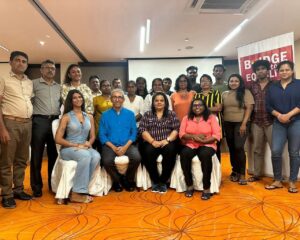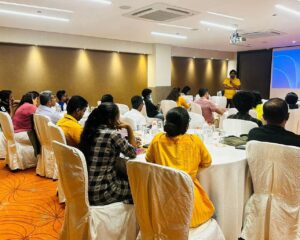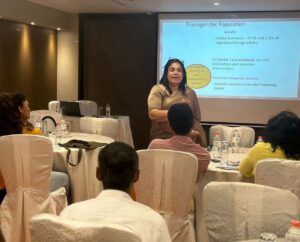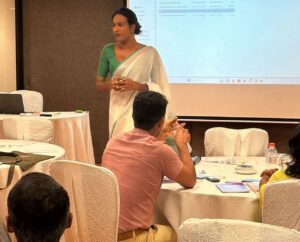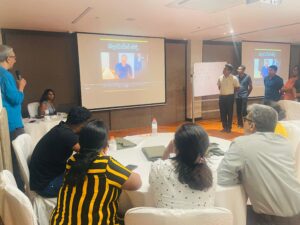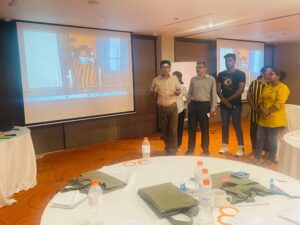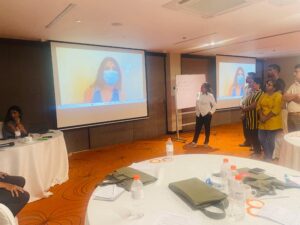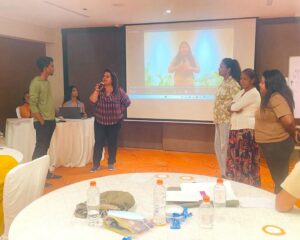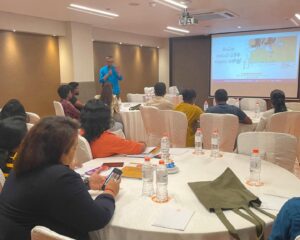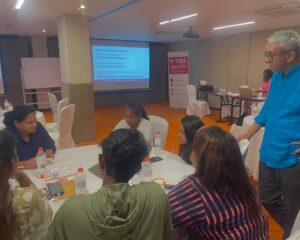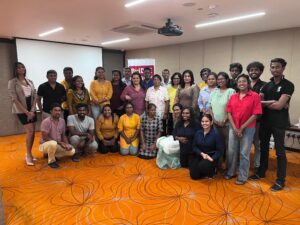December 14, 2023 Bridge Team
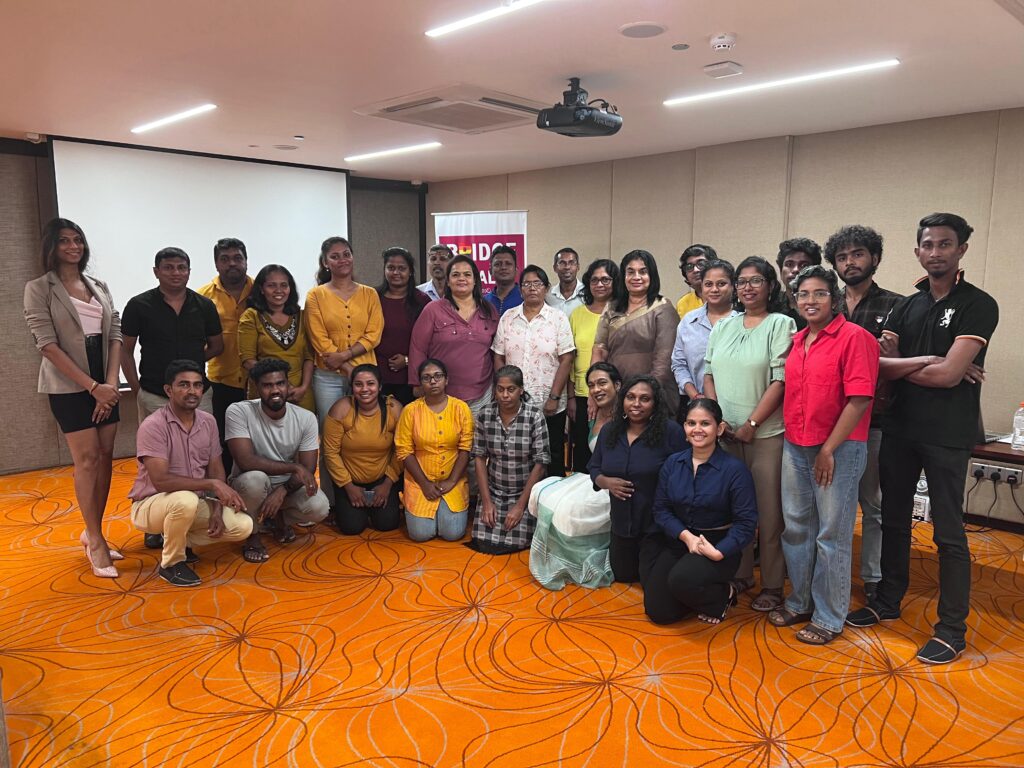
On the 11th and 12th of December 2023, BRIDGE to Equality conducted the second interactive
media training session following the success of the first one, marking the initiation of the second
phase of their project. The focus of this two-day event was to deliver an engaging and insightful
exploration of Sexual Orientation, Gender Identity, and Expression (SOGIE), coupled with an
emphasis on fostering ethical reporting on LGBTQ individuals and their pertinent issues.
The training session was orchestrated by two distinguished experts in their respective fields—Dr.
Janaki Vidanapathirana and Mr. Nalaka Gunawardene. Dr. Vidanapathirana, the Director of the
National STD/AIDS Control Programme, brought a wealth of knowledge to the table, boasting
qualifications in MBBS, MSc, and MD (Com. Med). Her extensive experience in public health
and communicable diseases provided a unique perspective on the intersection of healthcare and
media.
Joining her was Mr. Nalaka Gunawardene, science writer, journalist, and development
communication specialist. With a keen eye for bridging the gap between science, society, and
media, Gunawardene brought a nuanced understanding of effective communication strategies to
the training.
Day One: Understanding SOGIE
The inaugural day of the training delved into the core concepts of Sexual Orientation, Gender
Identity, and Expression. Dr. Janaki Vidanapathirana provided participants with a comprehensive
introduction, ensuring a solid foundation for the subsequent discussions. The workshop also
included an exploration of language and terminology related to SOGIE, aiming to equip media
professionals with the tools needed for respectful and accurate reporting.
An intricate analysis of the challenges faced by LGBTQ individuals within cultural, legal, and
societal frameworks formed a crucial segment of the first day’s agenda. The participants engaged
in discussions that shed light on the multifaceted nature of these challenges, fostering a deeper
understanding of the issues at hand. Dr. Janaki Vidanapathirana, drawing from her expertise in
public health, guided the participants through an exploration of sexual orientation and gender
identity.
Day Two: Ethical Reporting and Media Guidelines
The second day of the training shifted the focus to the ethical aspects of reporting on LGBTQ
issues. Mr. Nalaka Gunawardene, with his extensive background in journalism and development
communication, led an interactive session on achieving ‘Neutral’ reporting. Participants were
provided with practical tips and insights on navigating the delicate balance between objective
journalism and the advocacy of LGBTQ rights. The importance of sensitivity, respect, and
unbiased reporting was underscored, emphasizing the role media plays in shaping public
perceptions was highlighted.
A significant portion of the second day was dedicated to media guidelines specifically tailored
for LGBTQ news reporting. The workshop facilitated a dynamic exchange of ideas, enabling
participants to grasp the nuances of responsible journalism when covering LGBTQ-related
topics. The goal was not only to inform but to empower journalists and content creators to
contribute positively to the ongoing discourse surrounding LGBTQ issues.
The BRIDGE to EQUALITY project aims to empower media personnel, journalists and content
creators and provide them information on ethical reporting on LGBTQ persons and matters
concerning them. As media continues to play a pivotal role in shaping societal attitudes,
initiatives like these are crucial steps toward creating a more informed, empathetic, and inclusive
world.
The Media Trainings are conducted keeping in mind the importance of cultivating a well-
informed cadre of journalists within media institutions cannot be overstated, particularly when it
comes to issues related to LGBTQ persons, sexual orientation, and gender identity.
A clear understanding of the intricacies surrounding these matters is imperative to foster a more
inclusive and informed public discourse. Journalists serve as conduits of information, shaping
narratives that influence societal perceptions and attitudes. A comprehensive knowledge of
LGBTQ experiences, the challenges they face, and the prevailing stigmas is essential for
dismantling stereotypes and promoting empathy. Sensitivity in reporting is paramount, as it not
only upholds journalistic integrity but also contributes to the creation of a more tolerant and
accepting society. Informed journalists can play a transformative role by dispelling myths,
fostering awareness, and providing nuanced perspectives that transcend societal biases. As the
media landscape evolves, the responsibility to champion accurate, unbiased, and empathetic
reporting on LGBTQ issues becomes a cornerstone in the pursuit of social justice and equal
representation.
